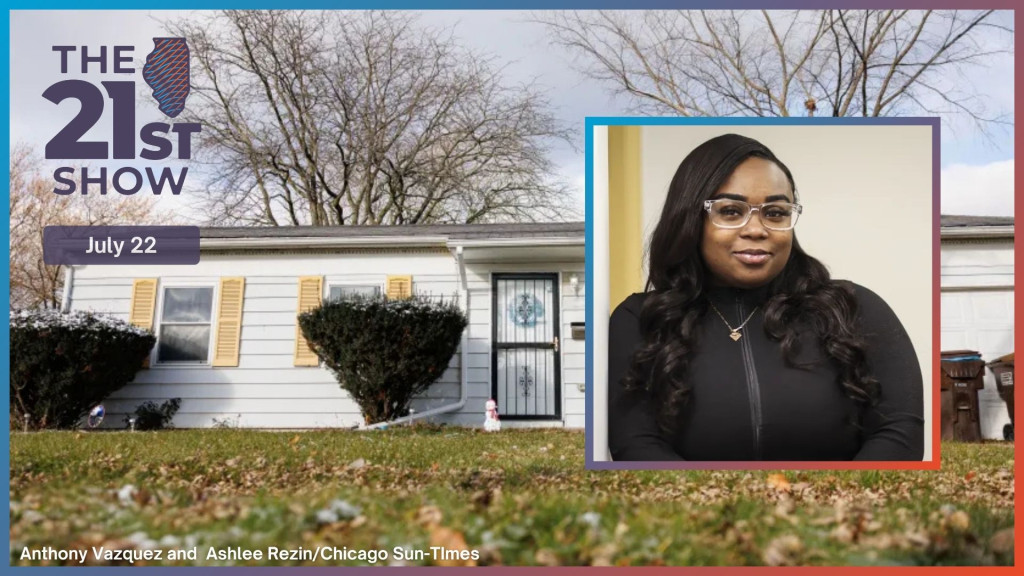Do ‘Crime-Free Housing’ ordinances in Illinois target vulnerable tenants or simply protect neighborhoods?

Diamond Jones left her Richton Park home in 2022 after being issued an eviction notice that cited a “crime-free ordinance,” a controversial local law. Anthony Vazquez and Ashle Rezin/Chicago Sun-Times
In Illinois, as in other states, there are many towns and cities with what are known as “crime-free housing” ordinances. The idea is to keep drugs and other illegal activity out of apartment buildings and other rental properties. If a place is found to be problematic, authorities can lean on the landlord to evict the tenant in question.
But an investigation by the Illinois Answers Project found that in towns across Illinois, people have been evicted not for violent crimes, but for allegations as minor as speeding … or even making too many calls to 911 for help. Critics say the ordinances disproportionately target low-income families and people of color while supporters of the law say the programs ensure safety and have helped revitalize struggling neighborhoods.
The journalist behind the investigative piece and an opponent of the ordinance as well as an advocate for it join the program.
GUESTS
Sidnee King
Reporter, Illinois Answers
Emily Coffey
Director of Equitable Community Development & Housing, Chicago Lawyers' Committee for Civil Rights
Mike Banske
President, Illinois Crime Free Association
Crime Free Housing Coordinator, Calumet City Police Department
Retired police officer

